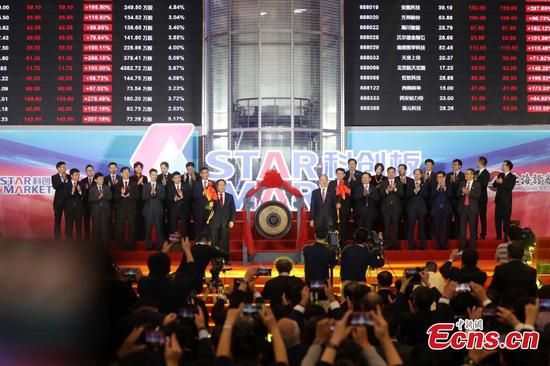Move indicates easing of bilateral trade tensions
E-commerce giant Alibaba Group opened its business-to-business (B2B) e-commerce marketplace Alibaba.com to U.S. businesses, a move that reflects a warm-up in trade relations between China and U.S., experts said on Wednesday.
Businesses in both countries got caught in the crossfire of the China-U.S. trade war, which broke out in middle March 2018. After repeated rounds of deterioration and negotiations, signs have emerged recently that trade relations are recovering between the two largest economies in the world.
Alibaba's new move will allow U.S. merchants, previously only allowed to buy on Alibaba.com, to sell products to customers from countries served by Alibaba such as Canada, Brazil and the U.S. itself.
This will benefit nearly 30 million small and medium-sized businesses in the U.S. by allowing them better access to the $23.9 trillion global B2B e-commerce market, which is six times larger than the B2C e-commerce market, Alibaba said in a statement it sent to the Global Times on Wednesday.
John Caplan, head of North America B2B at Alibaba Group, said that Alibaba is " reshaping B2B commerce by providing the tools and services needed for U.S. small and medium companies to compete and succeed in today's global marketplace," according to Alibaba's statement.
"This is the normal business exploration of Alibaba.com," the company told the Global Times.
According to Bloomberg News, U.S. produce wholesaler Robinson Fresh will be among the first U.S. companies to join Alibaba.com. Robinson Fresh didn't respond to an interview request from the Global Times as of press time.
Liu Dingding, a Beijing-based independent technology analyst, said that Chinese companies have been quickening their pace to tap the U.S. market recently, reflected by issues such as Alibaba's B2B strategy change and live-streaming company Douyu's Nasdaq debut.
"Those events are sending a signal that the trade tensions between China and the U.S. have eased, as private business interaction between the two countries is turning more active," Liu told the Global Times.
A CNBC report on Tuesday noted that the trade war is "coming down" with the U.S. easing up on Huawei.
Zhang Yi, CEO with Shenzhen-based iiMedia Research, said that China-U.S. trade friction has hurt the sales channels of many U.S. companies, particularly agricultural sellers in the U.S..
"Alibaba is helping them reach out to potential customers in the world at a time when U.S. sellers are eager to broaden their sales channels. This also helps create jobs in the country," Zhang told the Global Times.
This is also a good start for Alibaba to strengthen its B2B business when it is facing pressure in the B2C sector from growing domestic rivals including pinduoduo.com and jd.com, Liu said.
A Reuters report also attributed this business move to Alibaba's ambition to fend off rivals like Amazon.com Inc.
"Alibaba's competition with Amazon lies more in high-technology areas like artificial intelligence and big data than in e-commerce," Liu said.
He also said that Alibaba's efforts to facilitate cross-border trade are "omnibearing," with huge investment in cross-border logistics and storage.
Shares of Alibaba were trading up about 2.35 percent at $178.09 as of press time. The company's shares have risen by about 30 percent so far this year.


















































